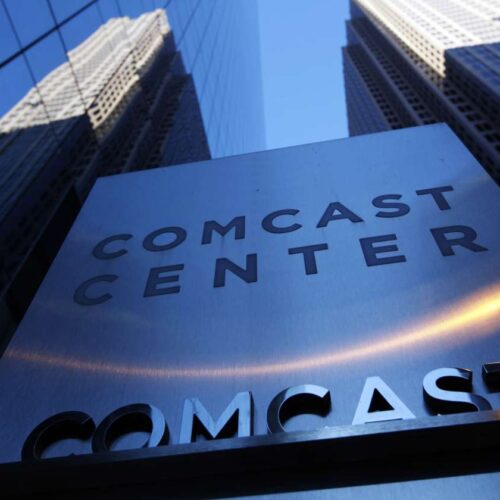Introduction
It is unlikely that Tuesday’s ruling upholding network neutrality regulations will see a Supreme Court review, leaving advocates of an open internet with a historic victory say legal experts on both sides of the debate.
A three-judge panel for the U.S. Court of Appeals for the District of Columbia ruled 2-1 to let stand the Federal Communications Commission’s Open Internet Order, or net neutrality rules, which prohibit providers from slowing or blocking competitors’ content or charging higher prices to companies such as Netflix Inc. or AT&T Inc. to deliver their content to customers faster.
The judges also decided that the rules also apply to wireless service.
The court held that the FCC has the authority to “compel internet openness — commonly known as net neutrality.”
FCC Chairman Tom Wheeler said, “Today’s ruling affirms the Commissions ability to enforce the strongest possible internet protections.”
The Democrat-led FCC approved the rules in February 2015 in a 3-2 party-line vote, classifying internet providers as a utility, like phone companies, which are subject to tighter regulations. Previously providers were classified as information services, which are subject to less stringent rules.
At the time, Wheeler said the rules were needed because “broadband providers have both the economic incentive and the technological capability to abuse their gatekeeper position.”
The U.S. Telecommunications Association, an industry trade group that advocates on behalf of broadband providers such as AT&T Inc. and Verizon Communications Inc., filed suit, arguing the FCC’s rules violate federal law.
Republicans and Internet providers argued the rules amounted to a government overreach and would prompt providers to cut back on investing in networks. Such improvements would lead to improved speeds and expanded services into rural and low-income areas, they say. Broadband providers invested $78 billion in their networks in 2014, according to the U.S. Telecommunications Association.
AT&T vowed Tuesday to appeal the decision to the Supreme Court.
“We have always expected this issue to be decided by the Supreme Court, and we look forward to participating in that appeal,” David McAtee, AT&T Senior Executive Vice President and General Counsel, said in a statement.
Other groups and companies said they would pursue an appeal or were evaluating their legal options.
But broadband advocates and legal scholars on both sides of the debate said it is unlikely the Supreme Court would hear the case, leaving the rules to stand and giving the Obama administration and net neutrality supporters a huge victory.
Reed Hundt, FCC chairman during the Clinton administration, said the dissenting opinion — written by Judge Stephen Williams, who was appointed to the court by President Ronald Reagan in 1986 — supports the argument that the FCC has the authority to reclassify internet service as a utility, making it unlikely that the Supreme Court will take up the issue.
“I agree with the majority that the Commission’s reclassification of broadband internet as a telecommunications service may not run afoul of any statutory dictate in the Telecommunications Act,” wrote Williams, who concurred in part and dissented in part. He argued, however, the FCC failed to properly justify why it was reclassifying internet services, saying “its explanation of the policy is watery thin and self-contradictory.”
Hundt said the FCC decision settled the matters of law and is among the top victories in the FCC’s history.
The two judges voting to uphold the rules were appointed by Democratic presidents: Judge David Tatel was appointed by President Bill Clinton, and Judge Sri Srinivasan was appointed by President Barack Obama. In December, the day before the appeals court heard oral arguments, the Center for Public Integrity reported that the FCC had an advantage in the case because of the Tatel’s and Srinivasan’s earlier decisions.
Further diminishing the possibility of an appeal is the tendency that the Supreme Court doesn’t accept cases unless lower courts have ruled differently on the issue, which has not happened.
“SCOTUS does not take up a case unless there is a split in lower courts,” said Matt Wood, policy director at Free Press, an advocacy group that supported the net neutrality rules.
John Bergmayer, senior staff attorney at Public Knowledge, which also supported the FCC’s net neutrality rules, agreed. There is “no legal question for the court to take up,” he said.
Even Christopher Yoo, a telecommunications law scholar at the University Of Pennsylvania School Of Law who submitted an amicus brief in support of the internet providers’ argument to strike down the rules, agreed that an appeal would likely be unsuccessful.
“There would need to be a broader issue for the court to take up,” Yoo said in an interview. He added that there are no conflicting laws in the case and that the high profile of the case alone isn’t enough for the court to take it up.
Other scholars agree that the Supreme Court hearing of the case is a long shot.
Having lost a major battle in the courts, providers are now looking to Congress.
The National Cable & Telecommunications Association, which represents providers such as Comcast Corp. and Time Warner Cable Corp., called for “meaningful legislation that can end ongoing uncertainty, promote network investment and protect consumers.”
Providers have a sympathetic ear in Sen. John Thune, a Republican from South Dakota who heads the Commerce, Science, and Transportation Committee, which oversees the FCC. He said in a statement that the court’s decision “is a clear signal that my colleagues and I need to re-establish Congress’ appropriate role in setting communications policy on a bipartisan basis.”
Read more in Inequality, Opportunity and Poverty
Broadband
AT&T and Time Warner: lower prices not part of the bargain
Commentary: after Comcast – NBCUniversal deal, politicians likely wary of new merger
Broadband
DSL providers save faster internet for wealthier communities
Noncable internet providers offer broadband speed to just 22 percent of the population in poor areas

Join the conversation
Show Comments